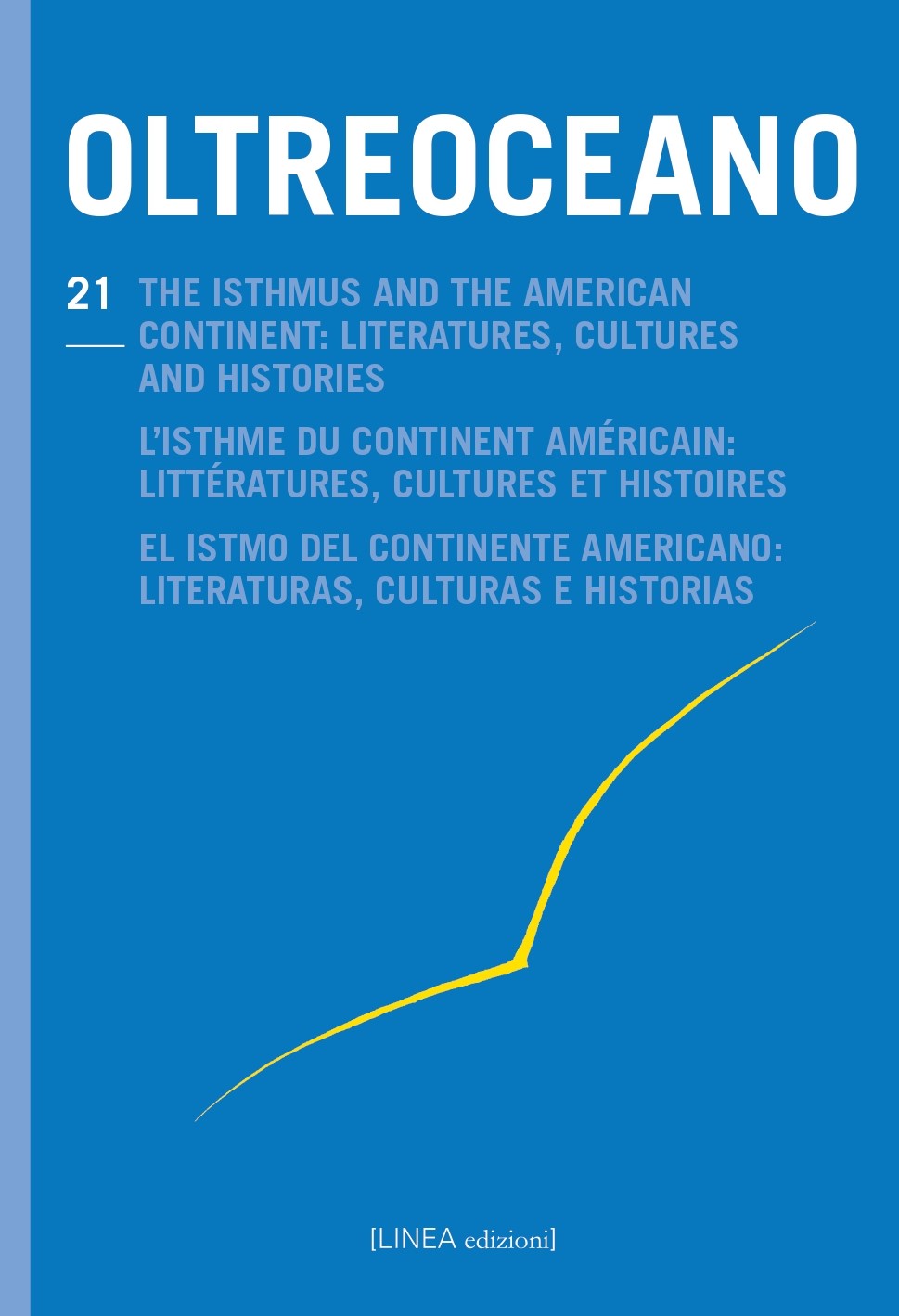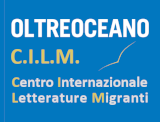Writing on the Margins: M. Nourbese Philip and Questions of Be/Longing
DOI:
https://doi.org/10.53154/Oltreoceano67Parole chiave:
M. NourbeSe Philip, identity, migration, transculturation, in-betweenAbstract
Tobago-born M. NourbeSe Philip is a poet and essayist living in Toronto, Canada. Her work often focuses on her experiences as a poet who is a Black immigrant woman. Although physically in Canada, Philip asserts that she writes from Tobago, creating a metaphorical isthmus that connects the culture and peoples of two spaces that were once British colonies and that share the same official language. By analyzing a selection of poems from She Tries Her Tongue, Her Silence Softly Breaks (1989) and essays from Bla_K: Essays & Interviews (2017), I aim at exploring how this metaphorical isthmus between Tobago and Canada is reflected in Philip’s work. Anchored to Fernando Ortiz’s concept of “transculturation” and Homi Bhabha’s concept of the “in-between,” I argue that Philip’s poems and essays reflect how the poet negotiates her identity as a Black immigrant woman in a country such as Canada, and how this affects the way she moves in this cultural and geographic space.
Downloads
Riferimenti bibliografici
Barrett, P. (2018): The Poetic Disturbances of M. NourbeSe Philip. The Walrus. Retrieved from https://thewalrus.ca/the-poetic-disturbances-of-m-nourbese-philip/ (Last accessed 18/08/2022).
Bhabha, H. (1994): The Location of Culture. New York: Routledge.
Clarke, G. E. (2002): Odysseys Home: Mapping African-Canadian Literature. Toronto: University of Toronto Press.
Davies, C. B. (2003): Black Women, Writing and Identity. London and New York: Routledge.
Kinnahan, L. A. (2004): “Our Visible Selves”: Visual-Verbal Collaborations in Erica Hunt, Alison Saar, and M. NourbeSe Philip. In L. A. Kinnahan (Ed.), Lyric Interventions: Feminism, Experimental Poetry, and Contemporary Discourse (pp. 80-131). Iowa: University of Iowa Press.
Labelle, M. & al. (2019): Caribbean Canadians. The Canadian Encyclopedia. Retrieved from https://www.thecanadianencyclopedia.ca/en/article/caribbean-canadians (Last accessed 18/08/2022).
Mahlis, K. (2004): A Poet of Place: An Interview with M. NourbeSe Philip. Callaloo, 27, 3, pp. 682-697. Retrieved from http://www.jstor.org/stable/3300838 (Last accessed 17/08/2022).
Mahlis, K. (2005): M. NourbeSe Philip: Language, Place, and Exile. Journal of West Indian Literature, 14, ½, pp. 166-201. Retrieved from http://www.jstor.org/stable/23020017 (Last accessed 18/08/2022).
McKittrick, K. (2006): Demonic Grounds: Black Women and the Cartographies of Struggle. Minneapolis: University of Minnesota Press. Retrieved from https://manifold.umn.edu/projects/demonic-grounds (Last accessed 17/08/2022).
Ortiz, F. (1995): Cuban Counterpoint: Tobacco and Sugar. H. de Onís (Transl.). Durham: Duke University Press.
Philip, M. N. (2015): She Tries Her Tongue, Her Silence Softly Breaks. Middletown: Wesleyan University Press.
Philip, M. N. (2017): Bla_K: Essays and Interviews. Toronto: BookThug.
Philip, M. N. (1992): Frontiers: Selected Essays and Writings on Racism and Culture, 1984-1992. Ontario: The Mercury Press.
York, L. (2021): “Unembedded, Disappeared”: Marlene NourbeSe Philip’s Hyper/In/Visible Literary Celebrity. Authorship, 10, 1, pp. 1-11. Retrieved from https://www.authorship.ugent.be/article/view/20636 (Last accessed 18/08/2022).
Downloads
Pubblicato
Come citare
Fascicolo
Sezione
Licenza

Questo lavoro è fornito con la licenza Creative Commons Attribuzione - Non commerciale - Condividi allo stesso modo 4.0 Internazionale.
Gli autori si impegnano a rispettare le seguenti condizioni, che s’intendono accettate al momento della sottomissione per la stampa dei propri contributi.
L’invio di un testo implica che esso sia inedito e non in attesa di essere pubblicato altrove.Gli autori si impegnano a rispettare le seguenti condizioni, che s’intendono accettate al momento della sottomissione per la stampa dei propri contributi.
- Qualora venga accettato, l’autore conferisce all’editore il diritto di pubblicarlo e distribuirlo sia in forma cartacea che nell’edizione elettronica in rete. Gli articoli pubblicati saranno scaricabili e resi disponibili in open access.
- Purché segnali correttamente che la prima pubblicazione è avvenuta sulla rivista «Oltreoceano. Rivista sulle migrazioni», l’autore ha facoltà di: a) riprodurre l’articolo in estratti separati o raccolti in volume; b) pubblicare l’articolo nel proprio sito personale o in quello di corsi di insegnamento purché si tratti di siti di natura non commerciale; c) depositare l’articolo in archivi online di carattere non commerciale, legati all’istituzione di appartenenza o come parte di progetti di diffusione non commerciale e open access dei lavori scientifici.
Non è consentita l’utilizzazione dei contributi da parte di terzi, per fini commerciali o comunque non autorizzati. L’editore declina ogni responsabilità sull’uso non autorizzato del materiale pubblicato sulla rivista.













